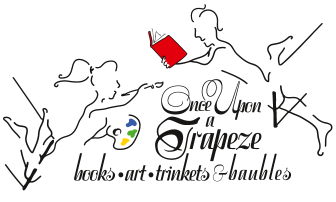The Guestbook is a sweeping novel by Sarah Blake, spanning three generations of the affluent and privileged, east coast Milton family. The story begins just before WWII and ends sometime in the late ’80’s/early 90’s. At first, I struggled to follow the plot, as it hopscotched through characters, continents, and time before dramatically, if not altogether neatly, coming together at the end. Quite possibly, this is because I tried listening while doing other things and had to keep backing up to see who we were talking about and what year we were in. Once I stopped multitasking and actually focused, an incredible story emerged, not only about how complicated and often painful family responsibilities, expectations, and relationships usually are, but more importantly, asking hard questions about class, gender, and race inequity, drawing parallels to Nazi Germany and making the point that it’s not enough to remain neutral, uninvolved. There is responsibility and, yes, guilt, in being the silent bystander; and perhaps even more so in being progressive for appearances’ sake only or to simply check a box on your “good person” to-do list.
Although Blake gives us an abundance of serious thoughts to think, she also tells several love stories, one involving an island, purchased as a gift to soothe an unspeakable sadness brought on by tragedy early on in the book. This island comes to represent not only an oasis for the Milton family but eventually becomes so much a part of who they are that it is hard to separate one from the other. I fell in love with Blake’s graceful, poetic prose and quickly became invested in her characters, even the ones I didn’t like. Through them all, I gained a glimpse into divergent perspectives, flawed or otherwise, and they made me think about where we are today when it comes to the very same questions. How much progress have we actually made when it comes to equality in all its forms? And what will it take to get all the way there? Is getting all the way there even possible?
This is why we read: to be entertained, to lose one’s self in the story and words of a truly talented writer, but, more importantly, to catch a glimpse of a part of the human experience we might otherwise not have considered.
“Heroes are the people who are bigger than their times. Most of us . . . are not. History is sometimes made by heroes, but it is also always made by us. We, the people, who stumble around, who block or help the hero out of loyalty, stubbornness, faith, or fear. Those who wall up – and those who break the walls. The people at the edge of the photographs. The people watching. The crowd. You.” History Professor Evie Milton in her first lecture of the semester.

